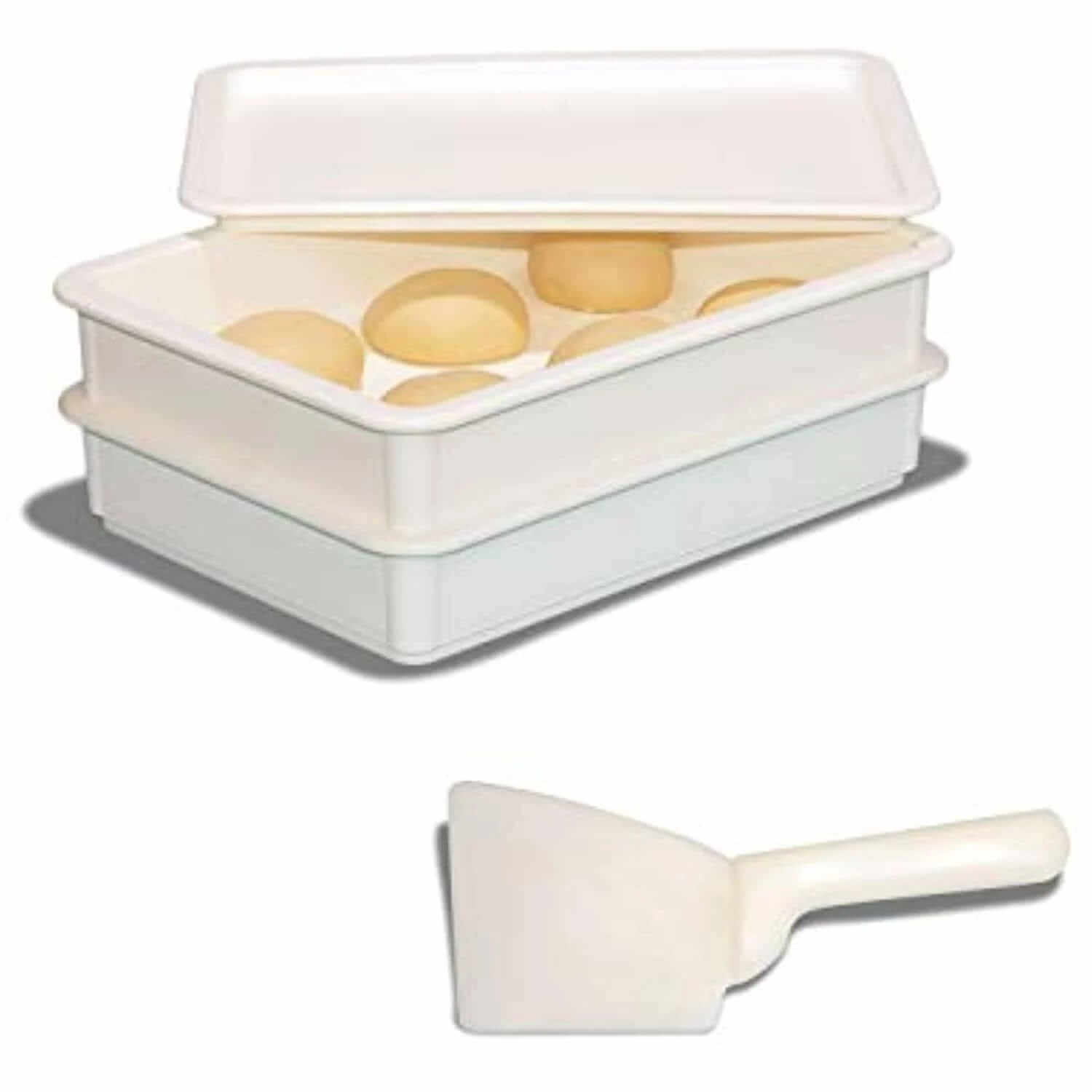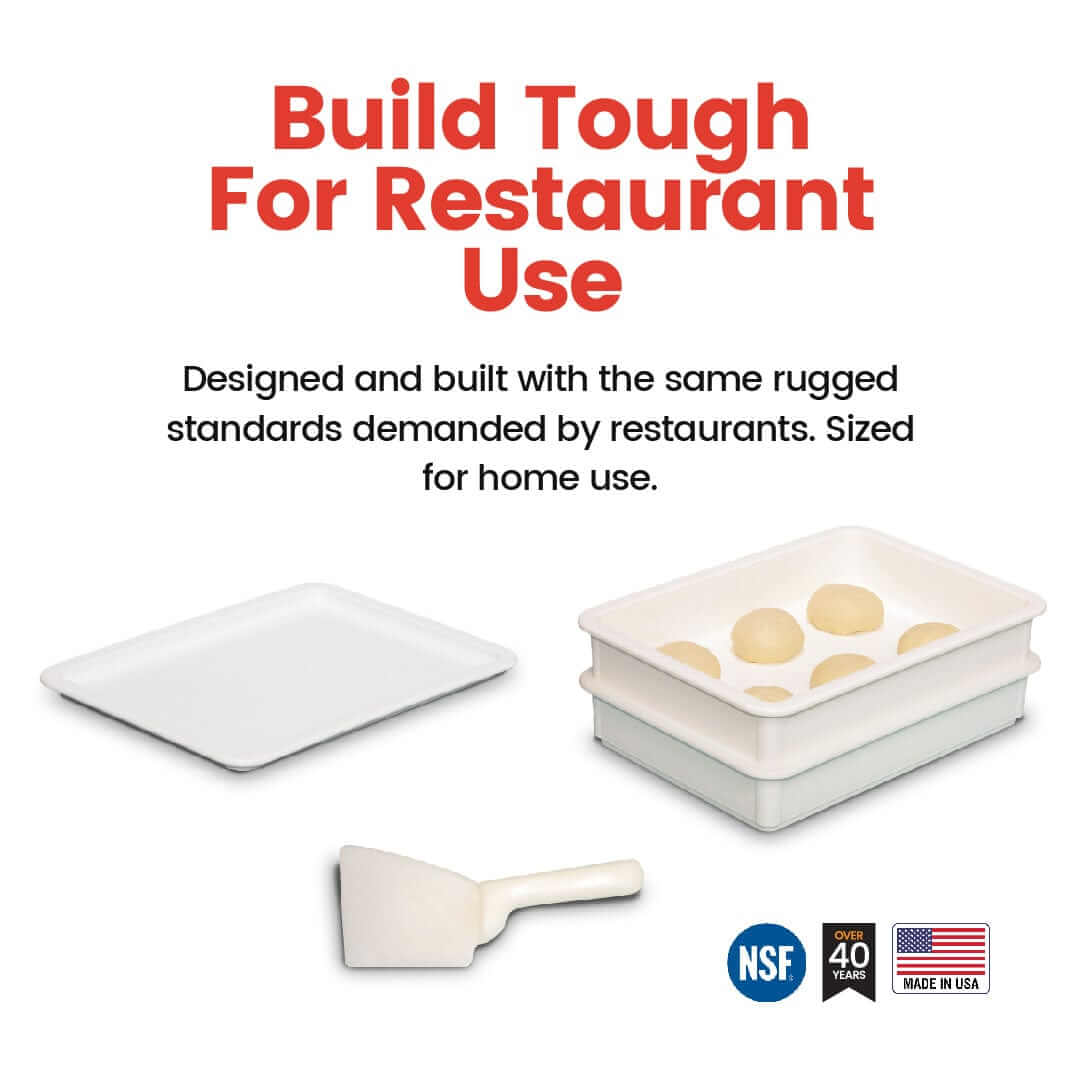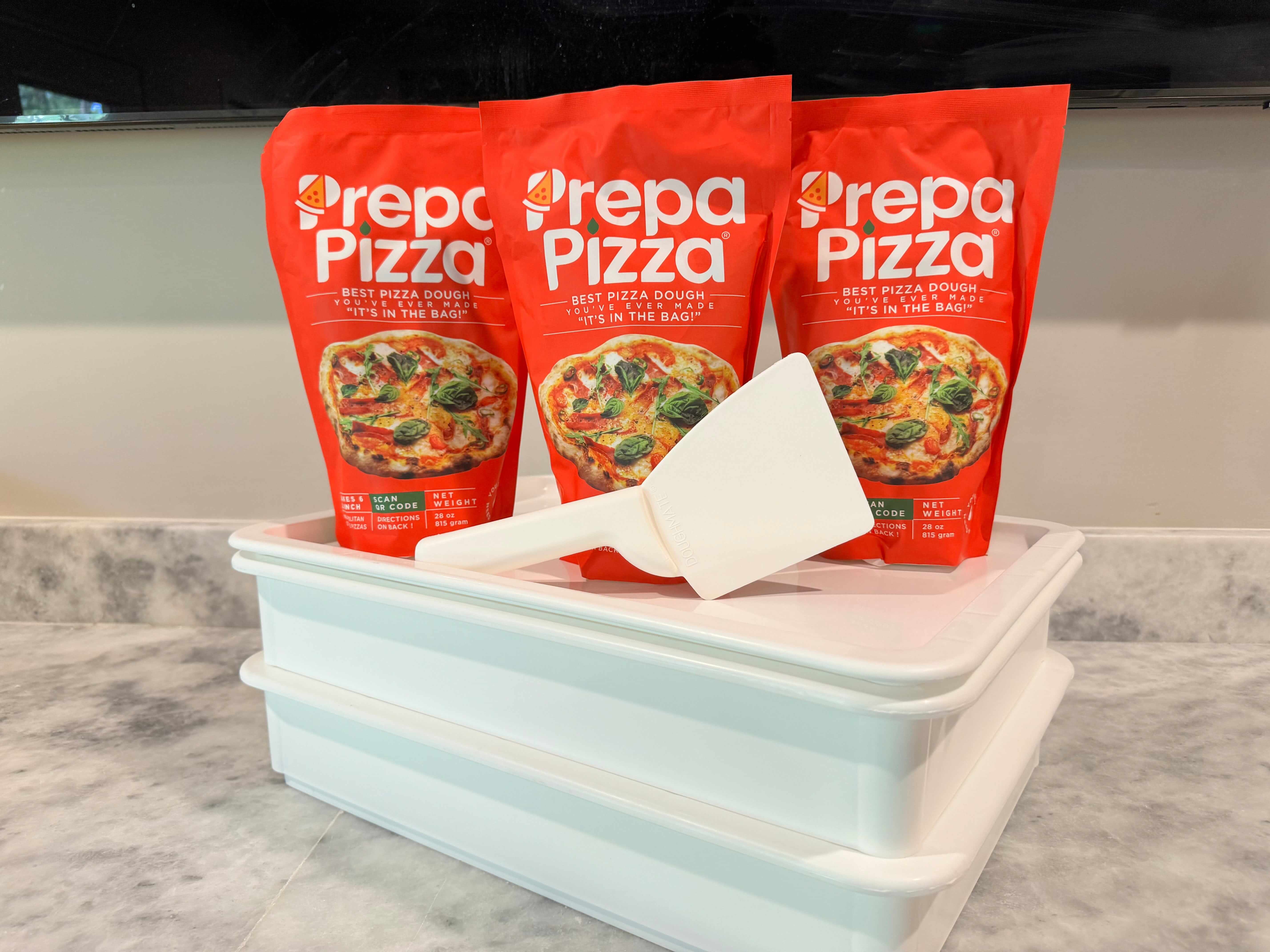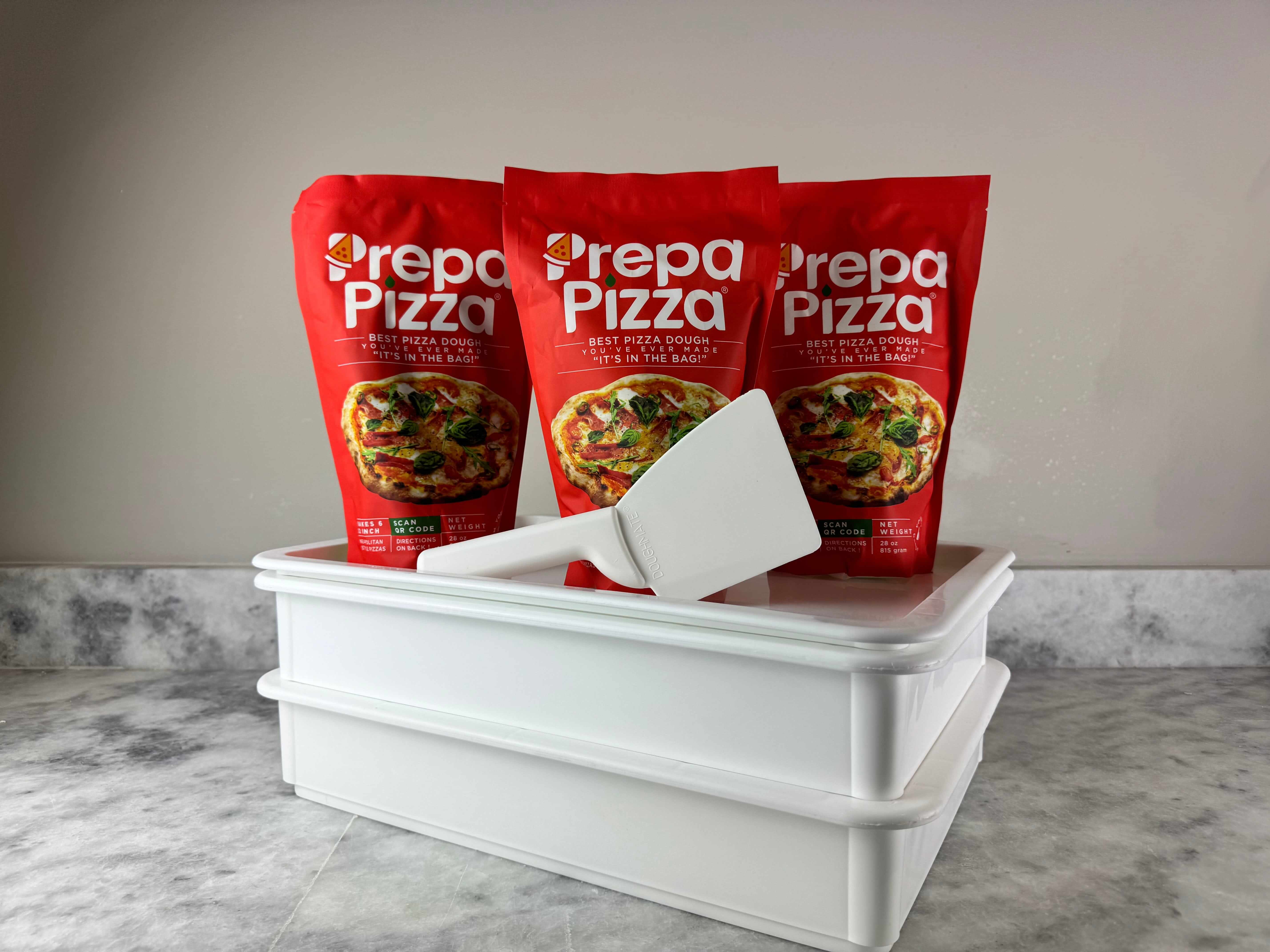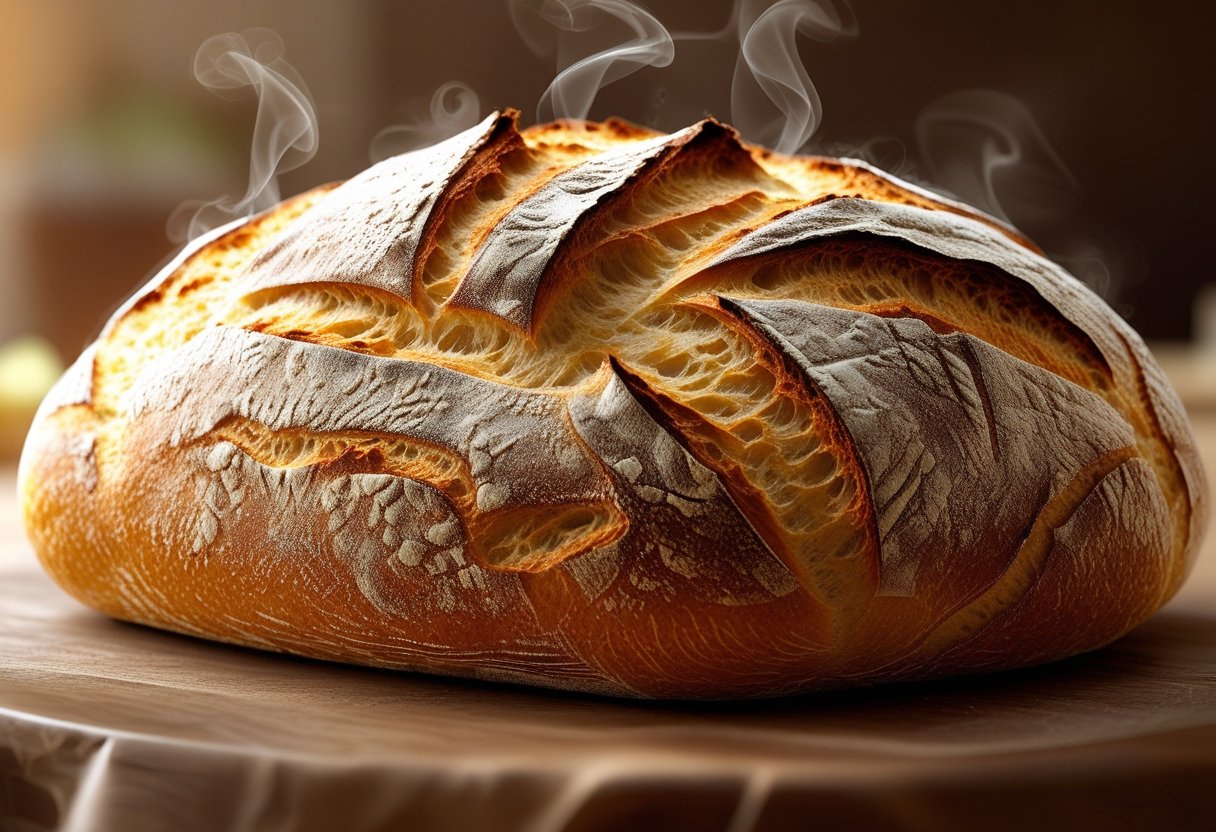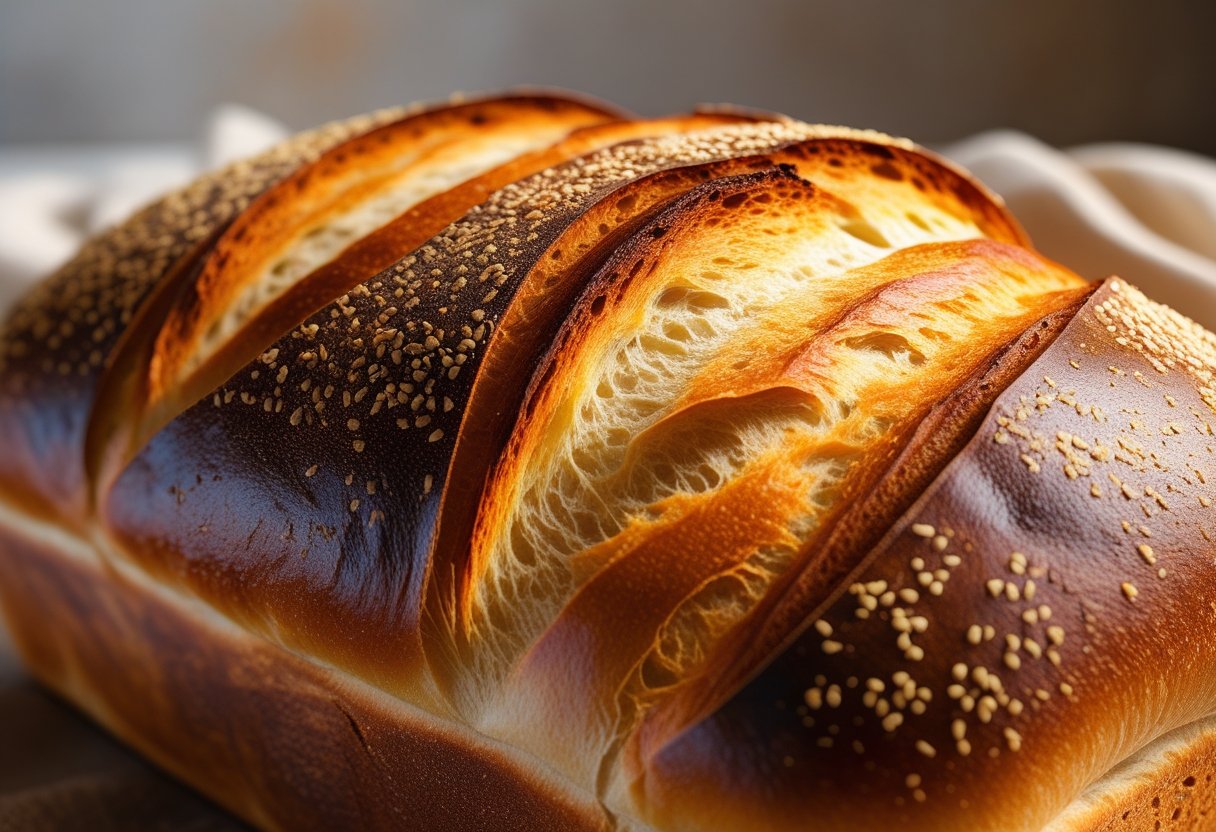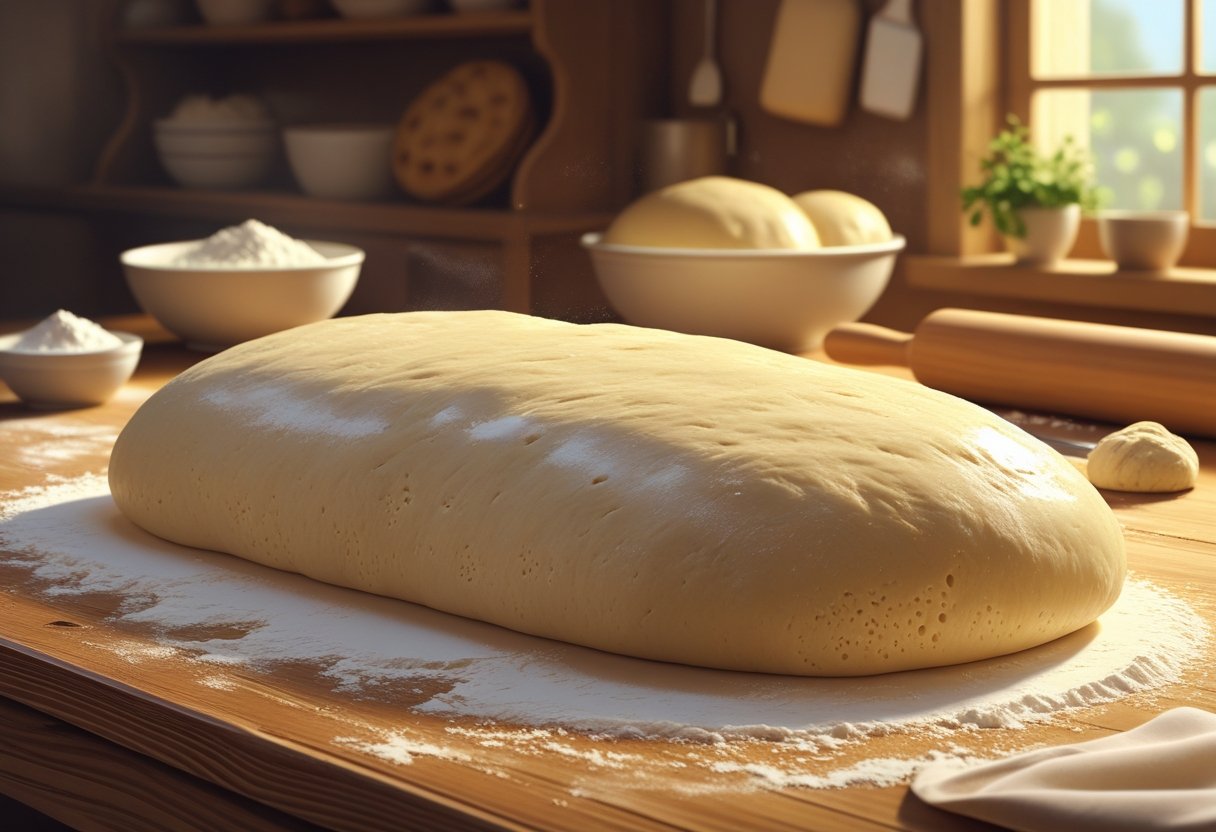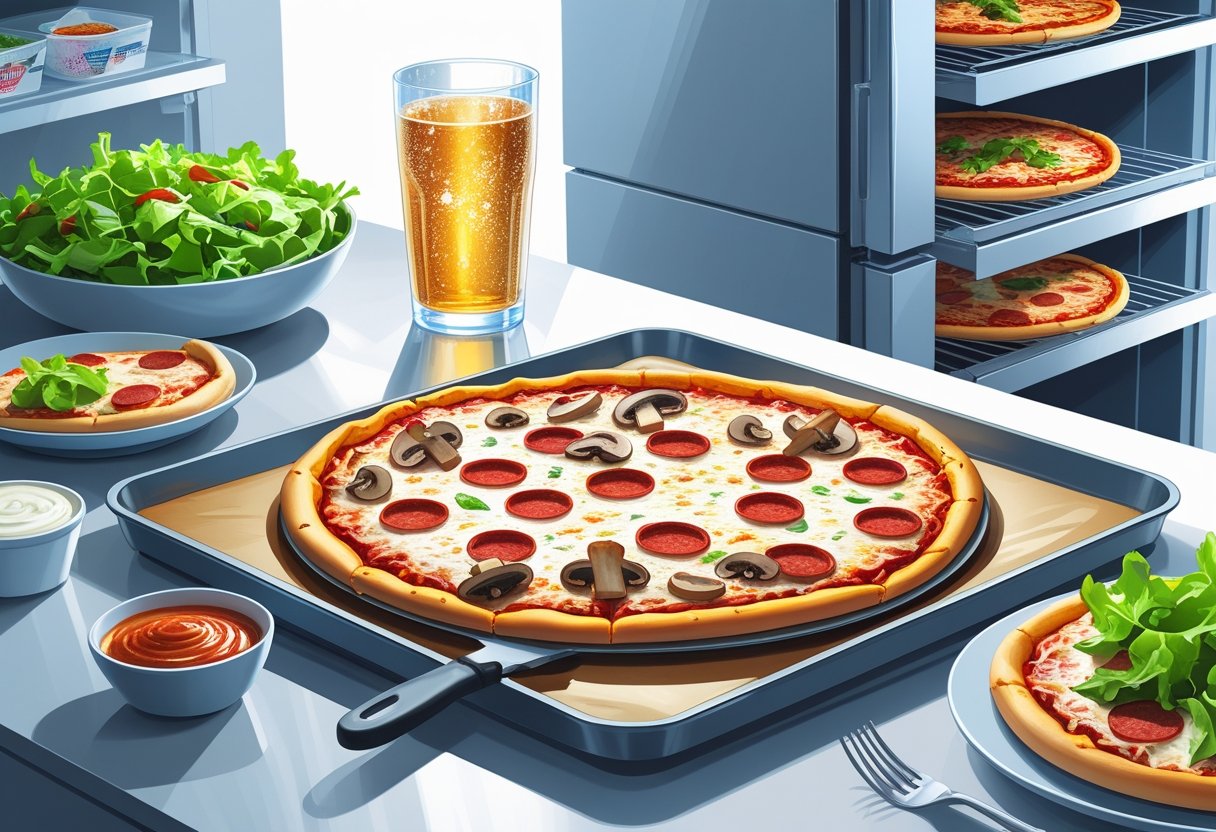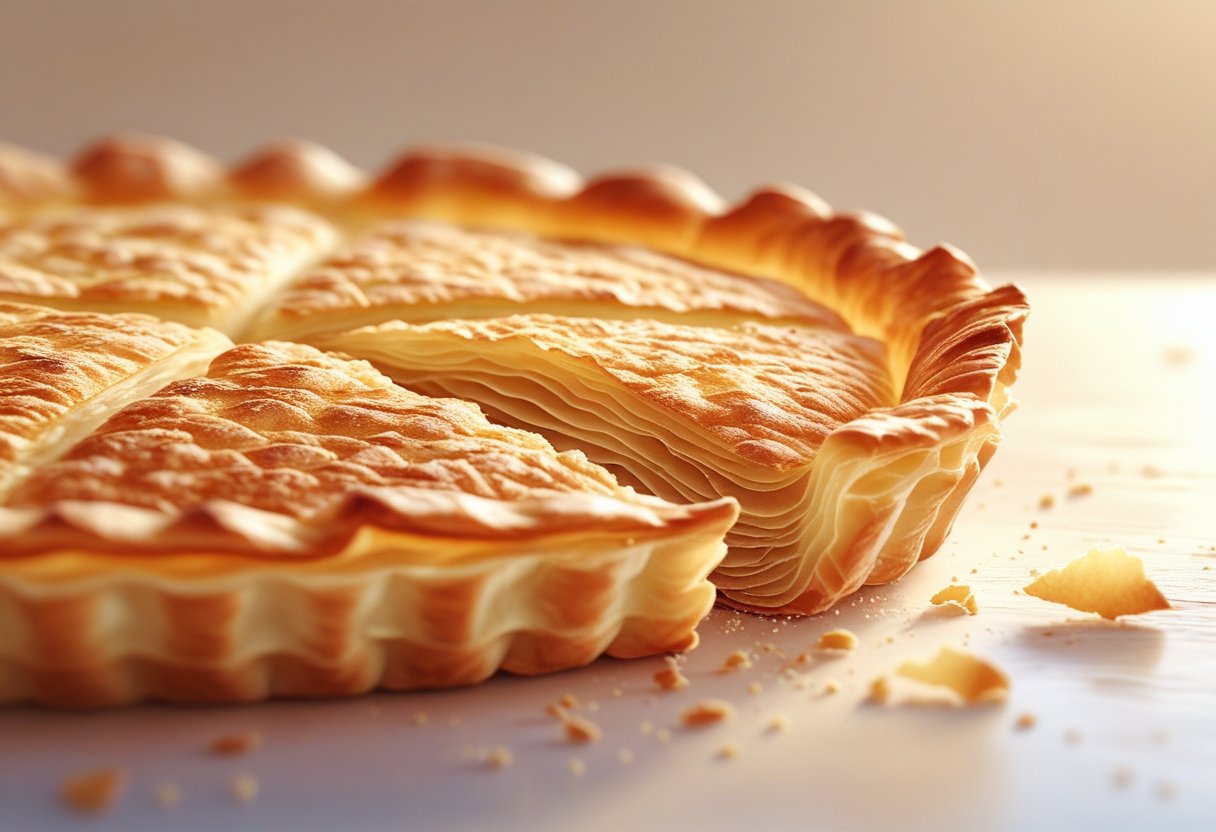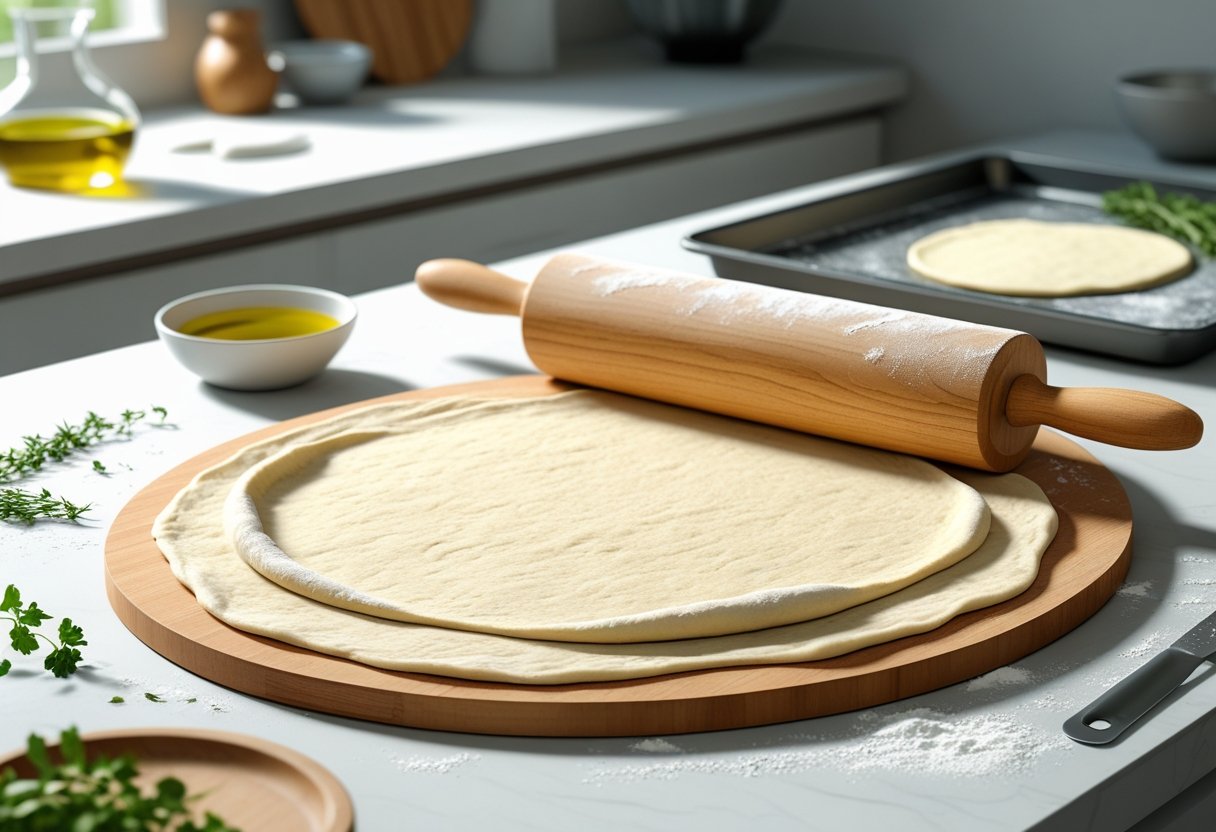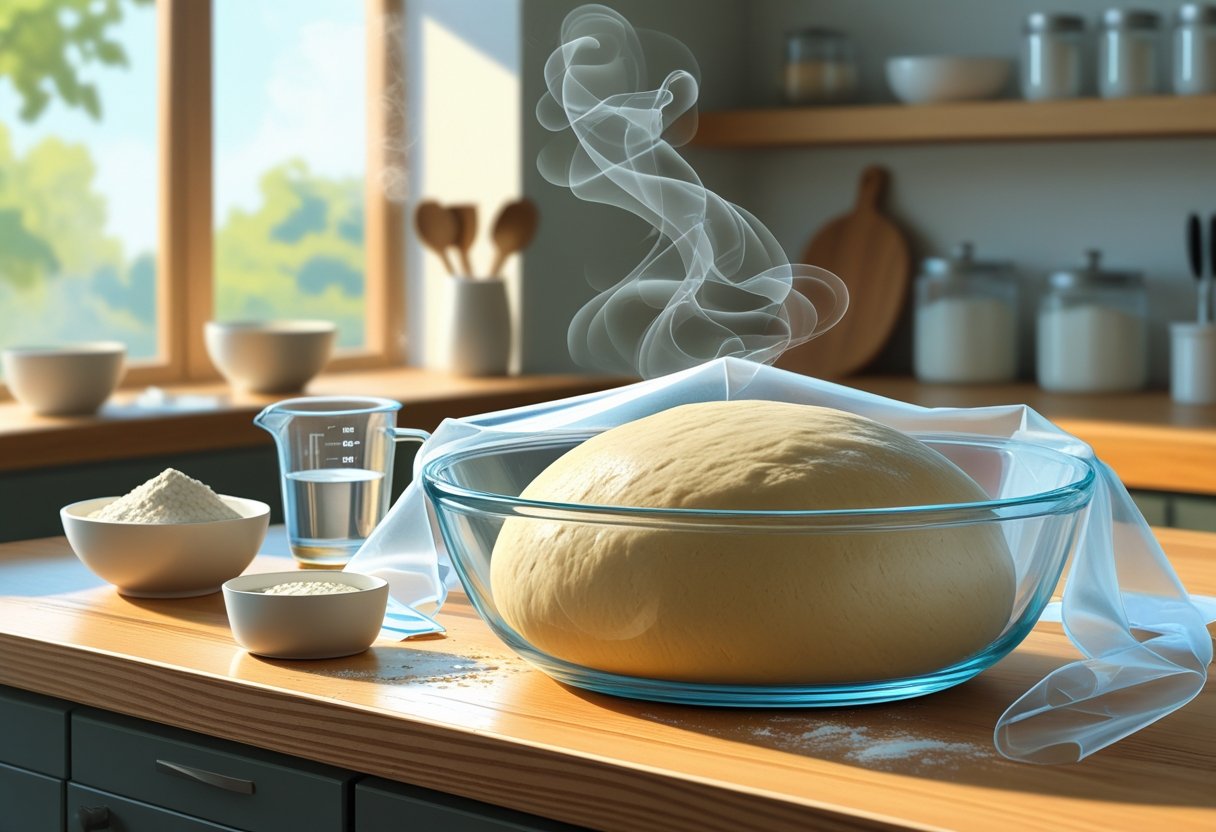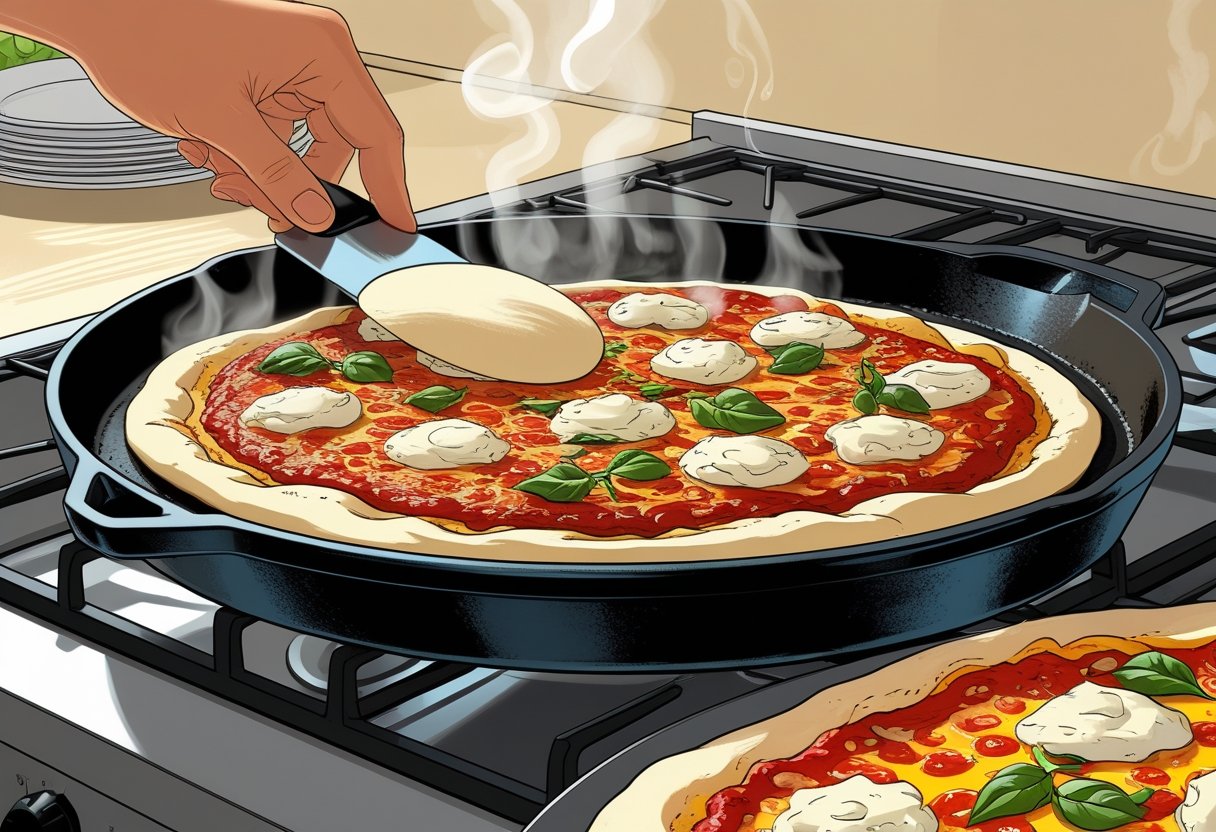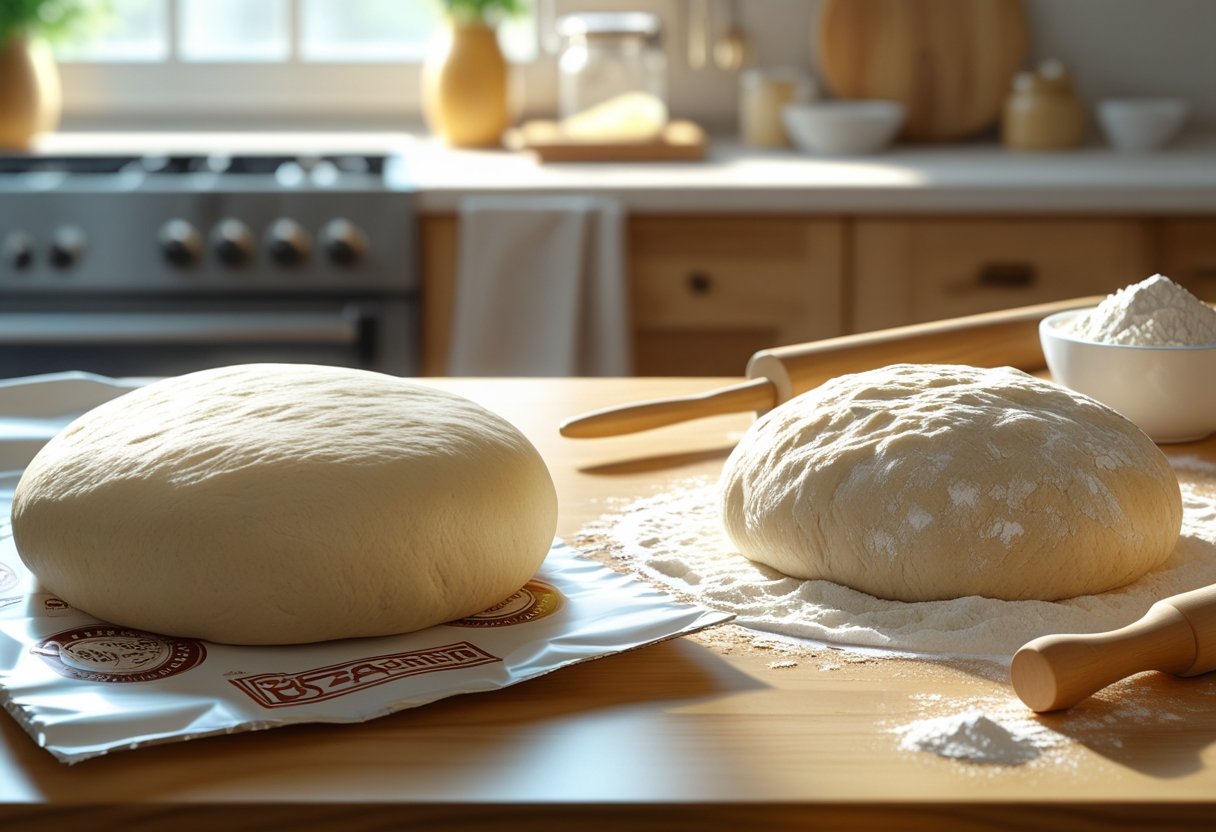
Premade Pizza Dough vs Homemade: Which is Best for Your Next Pizza Night?
When it comes to crafting the perfect pizza, the debate between premade pizza dough and homemade dough is quite common. Many home cooks often find themselves weighing the convenience of options like Prepa Pizza's premade dough against the satisfaction of creating dough from scratch. Ultimately, premade options can save you time while still delivering a restaurant-quality pizza experience.
Homemade pizza dough allows for a personalized touch and can be a rewarding endeavor if you enjoy cooking. The process includes sourcing quality ingredients, kneading, and allowing the dough to rise. However, with quality premade pizza dough available, you can skip this labor-intensive process and still achieve an impressive result.
In today's fast-paced world, you may appreciate the ease that premade dough provides. It simplifies the pizza-making process, allowing you to focus on creating delicious toppings and enjoying the moment with family and friends.
Key Differences Between Premade and Homemade Pizza Dough
When deciding between premade and homemade pizza dough, understanding the nuances of ingredients, texture, and preservatives is crucial. Each option presents unique benefits and drawbacks, particularly concerning taste and overall quality.
Ingredients and Additives
Premade pizza dough often uses a variety of ingredients and additives to enhance flavor and shelf life. For instance, many store-bought doughs contain high amounts of sugar, yeast, and flour, along with preservatives like calcium propionate to prolong freshness.
In contrast, homemade dough typically consists of simpler ingredients: flour, water, yeast, and salt. This purity allows you to control what goes into your pizza crust, leading to a fresher taste. Using high-quality ingredients, such as those found in Prepa Pizza's premade dough, can result in a superior flavor profile without unnecessary additives.
Texture and Crust Quality
Texture is a significant consideration. Premade pizza dough often delivers a consistent, reliable product that many find convenient. However, this convenience may lead to a less satisfying texture, often resulting in a crust that lacks the artisanal quality many pizza enthusiasts crave.
Homemade dough allows you to customize the thickness and texture, whether you prefer a thick, chewy crust or a thin, crispy one. The kneading and resting processes can produce a more aerated structure, contributing to that desirable crispy crust. The direct involvement in the dough-making process often results in a final product that aligns with your specific preferences.
Preservatives in Store-Bought Dough
Many store-bought pizza crusts contain preservatives to maintain shelf stability. Common preservatives include sodium benzoate and potassium sorbate, which can affect flavor and freshness. While these compounds help extend the product's lifespan, they may compromise the dough's overall quality.
On the other hand, homemade pizza dough is typically free from such preservatives, allowing you to enjoy a product that is fresher and free from artificial additives. Utilizing products like Prepa Pizza's premade dough ensures you have a superior base without sacrificing quality ingredients or the essence of homemade pizza.
Convenience and Time Considerations
When it comes to making pizza, convenience and time play significant roles in your decision between premade and homemade dough. If you're looking to enhance your pizza night or throw a pizza party, understanding the preparation times and available options can help you streamline your process.
Preparation Time and Effort
Using Prepa Pizza's premade dough can save you considerable time and effort compared to making dough from scratch. Preparing homemade dough often requires mixing, kneading, and allowing the dough to rise, which can take hours. In contrast, with premade dough, you simply need to roll it out and add your favorite toppings.
Typically, making your own dough might take upwards of two hours, factoring in preparation and rising time. With Prepa Pizza, you can have your dough ready in under 30 minutes, allowing for more time to enjoy your pizza night with friends and family.
Frozen and Refrigerated Options
If you prefer the flexibility of having dough on hand, consider using frozen or refrigerated options. Prepa Pizza's premade dough is available frozen, making it easy to store and use whenever you're ready for a quick pizza fix. This option allows you to take out only the amount you need, minimizing waste.
Frozen dough typically requires about thawing time, around 30 minutes to an hour before use. Alternatively, refrigerated dough can be rolled out more quickly. With Prepa Pizza, you can choose the best option to suit your schedule, ensuring you can always whip up a delicious pizza whenever the urge strikes.
Ideal Occasions: Pizza Night or Pizza Party
Choosing the right dough can greatly influence the success of your pizza night or pizza party. For casual gatherings, using Prepa Pizza's premade dough offers both convenience and taste, allowing you to focus on assembling various toppings rather than labor-intensive prep work.
If time is tight and guests are waiting, premade dough provides a stress-free solution that keeps the fun going. On the other hand, if you're preparing a special meal or wanting to impress, homemade dough may be the way to go, provided you allow ample time for preparation. Always consider the occasion and your audience to decide the best path forward for an enjoyable pizza experience.
Flavor and Customization Possibilities
When it comes to pizza, flavor and customization play crucial roles in creating the perfect meal. You can explore various ingredients and combinations to suit your taste preferences. With Prepa Pizza's premade dough, you have a solid base to start crafting delicious pizzas tailored to your liking.
Homemade Taste and Freshness
Homemade pizza dough offers a unique flavor and freshness that premade options might lack. You can experiment with different types of flour, such as whole wheat or gluten-free, for distinct flavors. By making the dough yourself, you control how it rises, which affects the texture and taste significantly.
Using fresh ingredients like high-quality tomatoes, cured meats, and artisanal cheeses can enhance the overall flavor profile. Your homemade sauce can be seasoned to your preference, incorporating fresh garlic and herbs for a robust taste.
Control Over Ingredients and Flavors
With homemade pizza, you have complete control over what goes into your dough. You choose every ingredient, ensuring that everything aligns with your nutritional goals or dietary restrictions. Whether you prefer a classic red sauce or a creamy white base, you can customize it to suit your palate.
You can also experiment with various toppings, from an array of cheeses to a colorful mix of vegetables. This versatility allows you to cater to different taste profiles, whether you enjoy savory combinations or a more gourmet approach.
Creative Pizza Recipes and Variations
The possibilities for pizza creations are nearly endless. With homemade dough, you can try various pizza recipes, from traditional Margherita to inventive combinations featuring unique toppings. For instance, consider adding seasonal vegetables or gourmet cheeses for a sophisticated twist.
You can also utilize premade dough to create other dishes such as garlic knots or flatbreads for a new take on pizza night. Utilizing the same dough base allows you to experiment without the hassle of starting from scratch. This creative freedom ensures you can enjoy something different each time you make pizza.
Explore your culinary skills with the quality of Prepa Pizza's premade dough, resulting in exceptional pies that suit any occasion. For a delightful and customizable experience, check out Prepa Pizza’s premade dough options.
Cooking Methods and Equipment
When preparing pizza, the cooking method and equipment you use can significantly influence the final result. Utilizing the right techniques ensures a delicious, crispy crust, whether you choose to work with homemade or Prepa Pizza's premade dough.
Best Baking Techniques
For baking pizza, your choice of technique affects the texture and flavor. Baking in a traditional oven is common. Preheat it to 475°F (245°C) for optimal results. Using a pizza peel to slide pizzas in and out of the oven ensures crisp edges.
Cooking Methods:
- Oven baking: Provides even heat distribution, ideal for thick and thin crusts.
- Grilling: Imparts a smoky flavor and promotes a crispy crust.
- Stovetop: Fast cooking for those in a hurry; remember to cover the skillet.
Don't add toppings to the dough until it's cooked briefly to prevent sogginess. This method can enhance texture and taste, yielding a great pizza experience.
Using a Pizza Stone for Perfect Crust
A pizza stone is an invaluable tool for achieving a crispy crust. Unlike a baking sheet, a stone absorbs moisture, allowing for even heat distribution.
To use a pizza stone effectively:
- Preheat the stone in the oven for at least 30 minutes.
- Dust the stone with flour or cornmeal to prevent sticking.
- Use a pizza peel to transfer your pie directly onto the hot stone.
The result? A perfectly baked crust that's both chewy and crispy, elevating your pizza night. With Prepa Pizza’s premade dough, your pizza-making efforts become even easier, combining quality ingredients for a fantastic meal.
Verdict: Which Is Better?
When deciding between premade pizza dough and homemade dough, it's essential to weigh the specific pros and cons that suit your cooking needs. Both options have unique advantages that can influence your pizza-making experience.
Evaluating Pros and Cons
Premade Pizza Dough
Using Prepa Pizza's premade dough offers convenience and quality. You save time, as the dough is ready to use right from the package. Made with premium ingredients, it eliminates the need to source and mix components yourself, allowing you to enjoy restaurant-quality pizza at home.
Homemade Pizza Dough
Making your own dough can be rewarding but time-consuming. You'll need to gather ingredients, knead the dough, and allow it to rise. Yet, this option offers control over ingredients and customizations, such as gluten-free or whole grain choices. However, the effectiveness heavily relies on technique and experience.
Choosing the Right Dough for Your Needs
Consider your cooking experience and time available. For a quick meal, Prepa Pizza's premade pizza dough is ideal, providing quality without the hassle. If you enjoy the process and have time to spare, homemade dough might be more satisfying.
Involving your family in making dough from scratch can create a fun experience. Evaluate factors such as dietary preferences, skill level, and time constraints to determine the best option for your pizza night.
Frequently Asked Questions
When deciding between premade pizza dough and homemade options, you likely have several questions in mind. The following answers will shed light on taste, cost, time investment, and quality between the two choices.
What are the taste differences between premade and homemade pizza dough?
Taste can vary significantly between premade and homemade dough. Homemade dough often allows you to customize flavors and textures, giving it a fresh taste. With high-quality options like Prepa Pizza, you can enjoy a taste similar to that of restaurant-quality pizza, making it a convenient choice.
How does the cost of premade pizza dough compare to making it at home?
The cost of premade pizza dough can be competitive compared to the ingredients needed for homemade versions. While making your dough requires purchasing flour, yeast, and other ingredients, opting for premade options like those from Prepa Pizza can save you both money and time, especially if you factor in the cost of your time spent preparing.
What is the time investment in making homemade pizza dough versus buying it premade?
Making homemade pizza dough typically requires more time compared to purchasing premade options. You need to measure ingredients, knead the dough, and allow it to rise. In contrast, Prepa Pizza’s dough can be ready to use after a quick thaw, making it ideal for busy evenings or spontaneous meals.
Can store-bought pizza dough match the quality of homemade dough?
Store-bought pizza dough has improved significantly, and many options can be quite close in quality to homemade varieties. For instance, Prepa Pizza dough is crafted with premium ingredients to ensure it meets high standards, bringing convenience without sacrificing quality.
What are the pros and cons of using premade pizza dough for quick meals?
Premade pizza dough offers several advantages, such as convenience and speed. It's easy to use, allowing you to whip up a meal without the hassle of preparation. However, the main downside may include limited control over ingredients and flavor compared to making your dough from scratch.
How do the ingredients in homemade pizza dough compare with those in store-bought variants?
Homemade pizza dough often features simple and fresh ingredients, which allows for full control over quality. In contrast, store-bought varieties, including those from Prepa Pizza, utilize high-quality ingredients to deliver excellent flavor and texture without preservatives, giving you a satisfying meal quickly.




